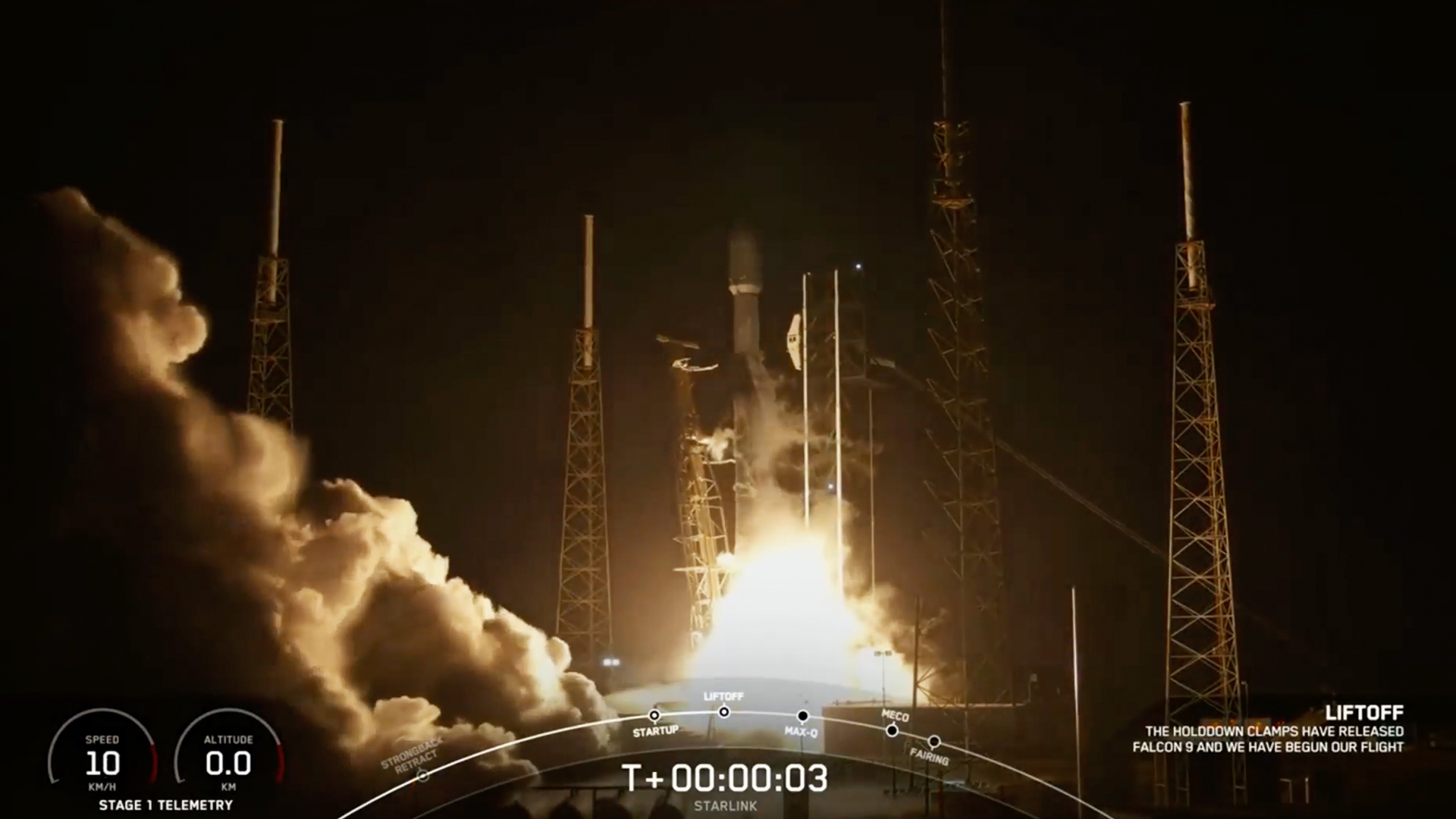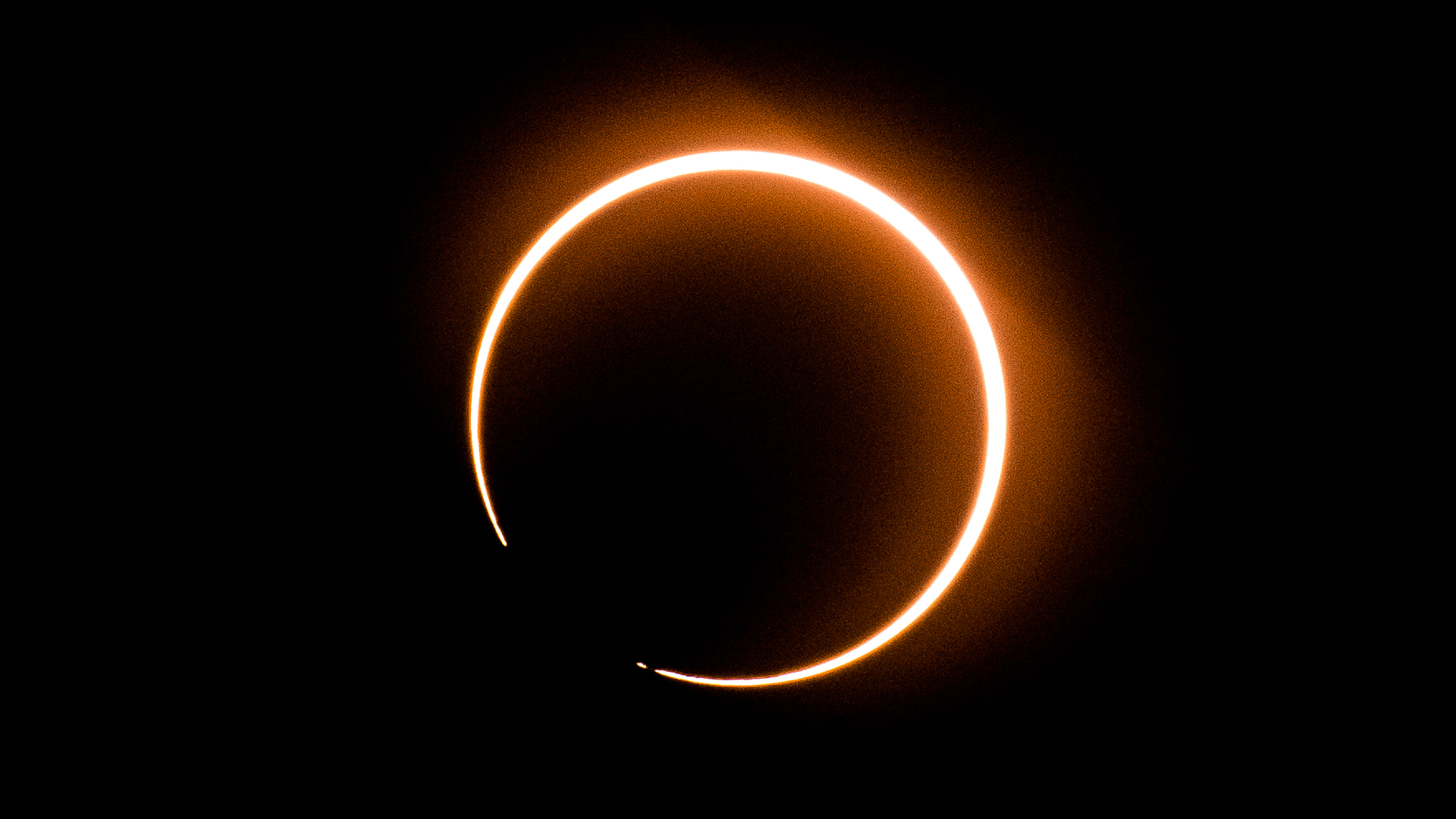SpaceX launches 20 Starlink satellites from Florida early on July 3 after delay (video)
Breaking space news, the latest updates on rocket launches, skywatching events and more!
You are now subscribed
Your newsletter sign-up was successful
Want to add more newsletters?

Delivered daily
Daily Newsletter
Breaking space news, the latest updates on rocket launches, skywatching events and more!

Once a month
Watch This Space
Sign up to our monthly entertainment newsletter to keep up with all our coverage of the latest sci-fi and space movies, tv shows, games and books.

Once a week
Night Sky This Week
Discover this week's must-see night sky events, moon phases, and stunning astrophotos. Sign up for our skywatching newsletter and explore the universe with us!

Twice a month
Strange New Words
Space.com's Sci-Fi Reader's Club. Read a sci-fi short story every month and join a virtual community of fellow science fiction fans!
SpaceX launched yet another batch of its Starlink internet satellites from Florida in the wee hours of Wednesday morning (July 3), following a two-hour delay.
A Falcon 9 rocket carrying 20 Starlink spacecraft, including 13 with direct-to-cell capabilities, lifted off from Cape Canaveral Space Force Station on Wednesday at 4:55 a.m. EDT (0855 UTC). While the launch was delayed due to technical issues, the three-hour window for liftoff opened at 2:57 a.m. EDT (0601 GMT).
The Falcon 9's first stage came back to Earth about eight minutes after launch. It will touch down on the droneship called "A Shortfall of Gravitas," stationed in the Atlantic Ocean.
Related: SpaceX unveils new Starlink Mini antenna for internet users on the go
Wednesday's liftoff was the 16th launch and landing for this particular booster, according to a SpaceX mission description. Ten of its 15 flights to date have been Starlink missions.
The Falcon 9's upper stage, meanwhile, continued hauling the 20 satellites to low Earth orbit, where there were deployed about 61 minutes after liftoff.
Wednesday morning's launch was the 67th Falcon 9 mission of 2024 already. More than 70% of the rocket's liftoffs this year have been devoted to building out the ever-growing Starlink megaconstellation, which currently consists of more than 6,150 operational satellites.
Breaking space news, the latest updates on rocket launches, skywatching events and more!
In addition to this year's Falcon 9 missions, SpaceX has conducted one launch of its powerful Falcon Heavy rocket and two test flights of Starship, the next-gen vehicle the company is developing to help humanity get a toehold on the moon and Mars.
This story was updated at 8 a.m. EDT with news of the successful launch.

Michael Wall is a Senior Space Writer with Space.com and joined the team in 2010. He primarily covers exoplanets, spaceflight and military space, but has been known to dabble in the space art beat. His book about the search for alien life, "Out There," was published on Nov. 13, 2018. Before becoming a science writer, Michael worked as a herpetologist and wildlife biologist. He has a Ph.D. in evolutionary biology from the University of Sydney, Australia, a bachelor's degree from the University of Arizona, and a graduate certificate in science writing from the University of California, Santa Cruz. To find out what his latest project is, you can follow Michael on Twitter.

